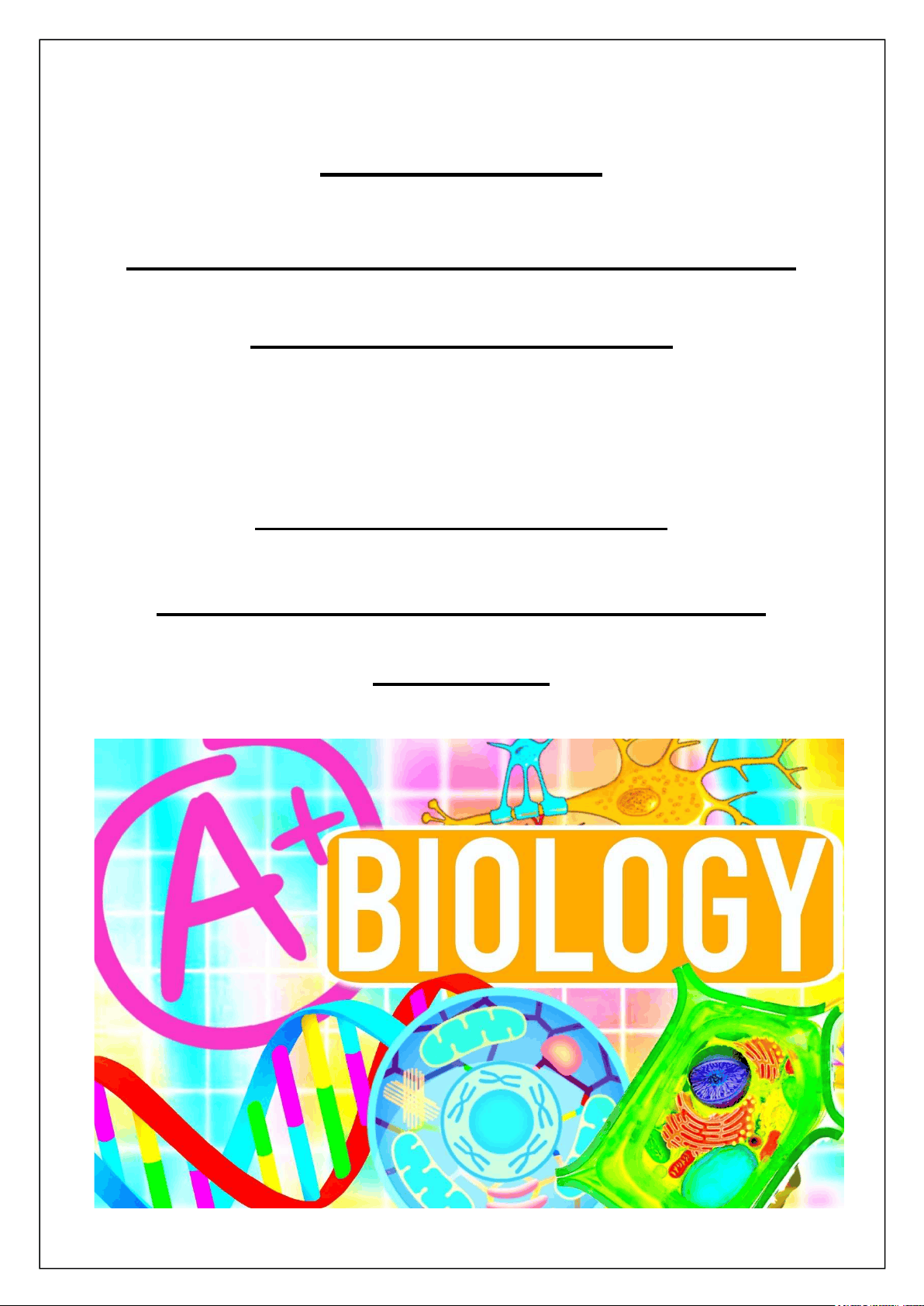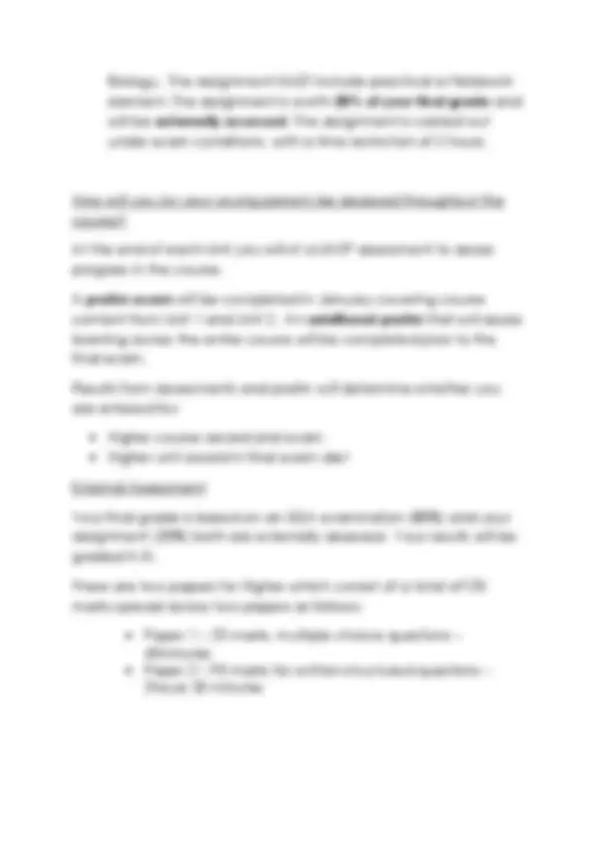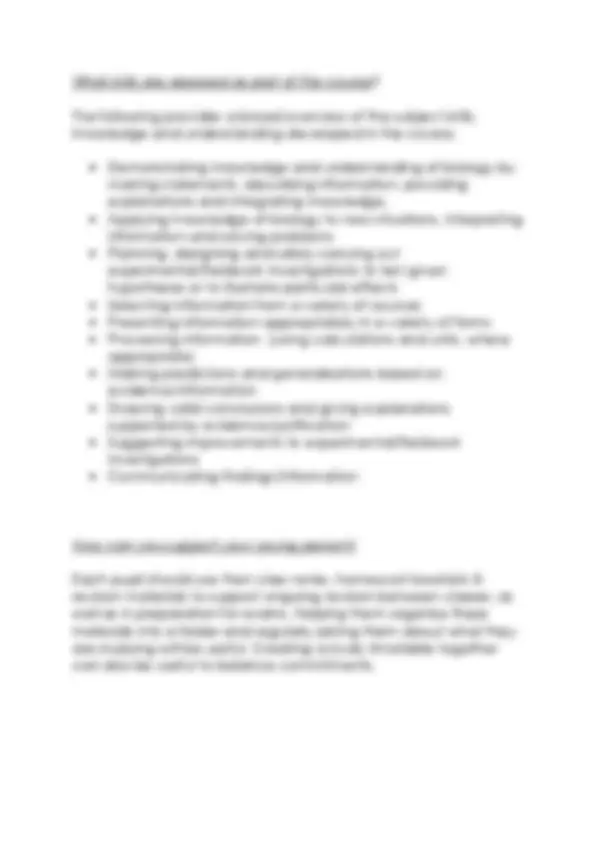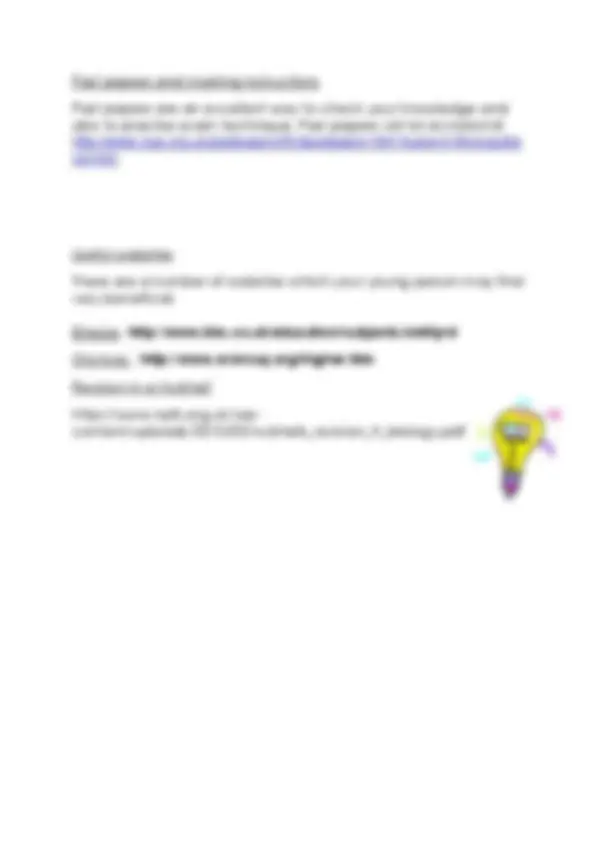





Study with the several resources on Docsity

Earn points by helping other students or get them with a premium plan


Prepare for your exams
Study with the several resources on Docsity

Earn points to download
Earn points by helping other students or get them with a premium plan
Community
Ask the community for help and clear up your study doubts
Discover the best universities in your country according to Docsity users
Free resources
Download our free guides on studying techniques, anxiety management strategies, and thesis advice from Docsity tutors
The Higher Human Biology course also has 3 mandatory units and an assignment. ... Each pupil should use their class notes, homework booklets &.
Typology: Slides
1 / 7

This page cannot be seen from the preview
Don't miss anything!




What the course is about? Biology is the study of living organisms, and plays a crucial role in our everyday existence and is an increasingly important subject in the modern world. Advances in technologies have made this subject more exciting and relevant than ever. The course develops the ability to think analytically, creatively and independently to make reasoned evaluations through a variety of approaches including practical activities. Opportunities will be provided for learners to develop informed and ethical views of complex issues. The National 5 course will encourage communication, collaborative work; develop leadership skills as well as confidence in scientific skills. How are the courses organised? The Higher Biology course has 3 mandatory units and an assignment. Unit 1 – DNA and the Genome Unit 2 – Metabolism and Survival Unit 3 – Sustainability and Interdependence The Higher Human Biology course also has 3 mandatory units and an assignment. Unit 1 – Human Cells Unit 2 – Physiology & Health Unit 3 – Neurobiology & Immunology Assignment - The purpose of the assignment is to allow you to have the opportunity to apply skills and knowledge that you have learned in class by investigating a chosen topic in
What skills are assessed as part of the course? The following provides a broad overview of the subject skills, knowledge and understanding developed in the course. Demonstrating knowledge and understanding of biology by making statements, describing information, providing explanations and integrating knowledge. Applying knowledge of biology to new situations, interpreting information and solving problems Planning, designing and safely carrying out experimental/fieldwork investigations to test given hypotheses or to illustrate particular effects Selecting information from a variety of sources Presenting information appropriately in a variety of forms Processing information (using calculations and units, where appropriate) Making predictions and generalisations based on evidence/information Drawing valid conclusions and giving explanations supported by evidence/justification Suggesting improvements to experimental/fieldwork investigations Communicating findings/information How can you support your young person? Each pupil should use their class notes, homework booklets & revision materials to support ongoing revision between classes, as well as in preparation for exams. Helping them organise these materials into a folder and regularly asking them about what they are studying will be useful. Creating a study timetable together can also be useful to balance commitments.
Past papers and marking instructions Past papers are an excellent way to check your knowledge and also to practise exam technique. Past papers can be accessed at http://www.sqa.org.uk/pastpapers/findpastpaper.htm?subject=Biology&le vel=NH Useful websites There are a number of websites which your young person may find very beneficial. Bitesize http://www.bbc.co.uk/education/subjects/zm6tyrd Oronsay http://www.oronsay.org/Higher.htm Revision in a Nutshell http://www.npfs.org.uk/wp- content/uploads/2015/03/nutshells_revision_H_biology.pdf